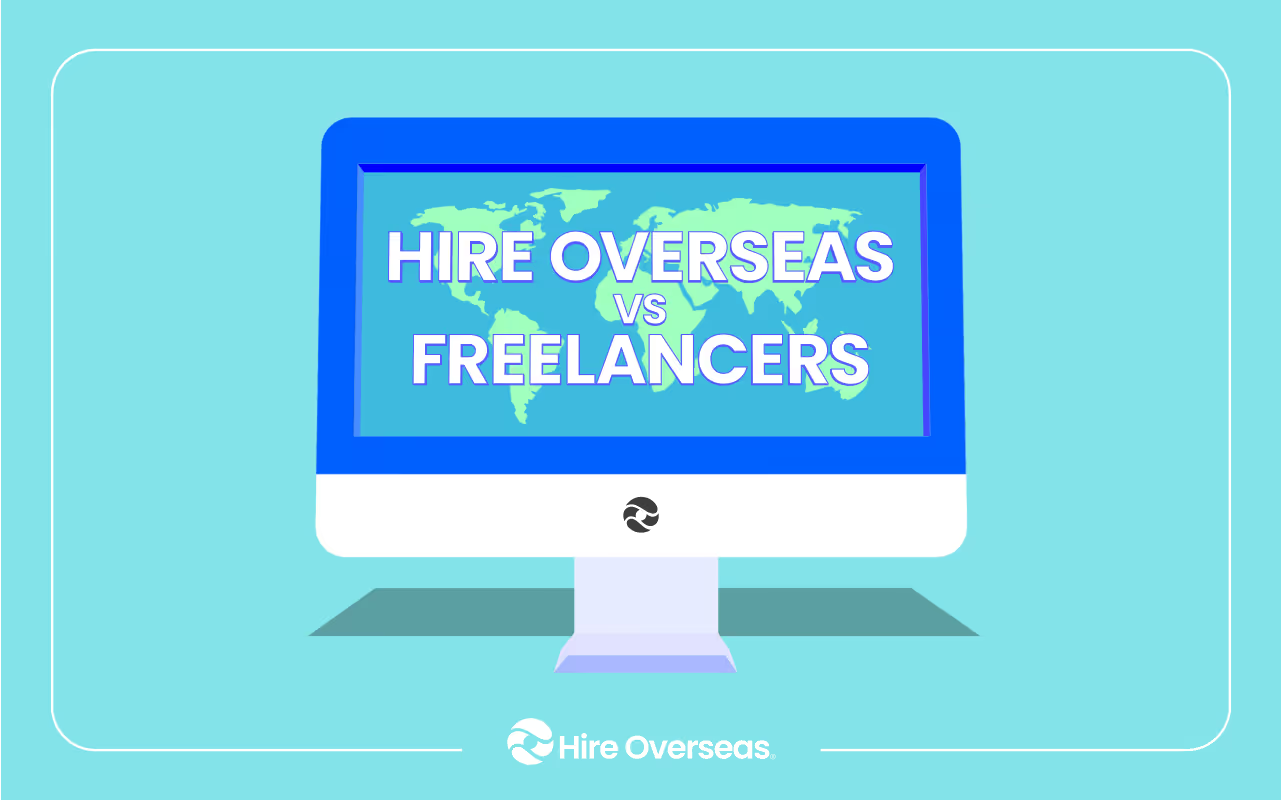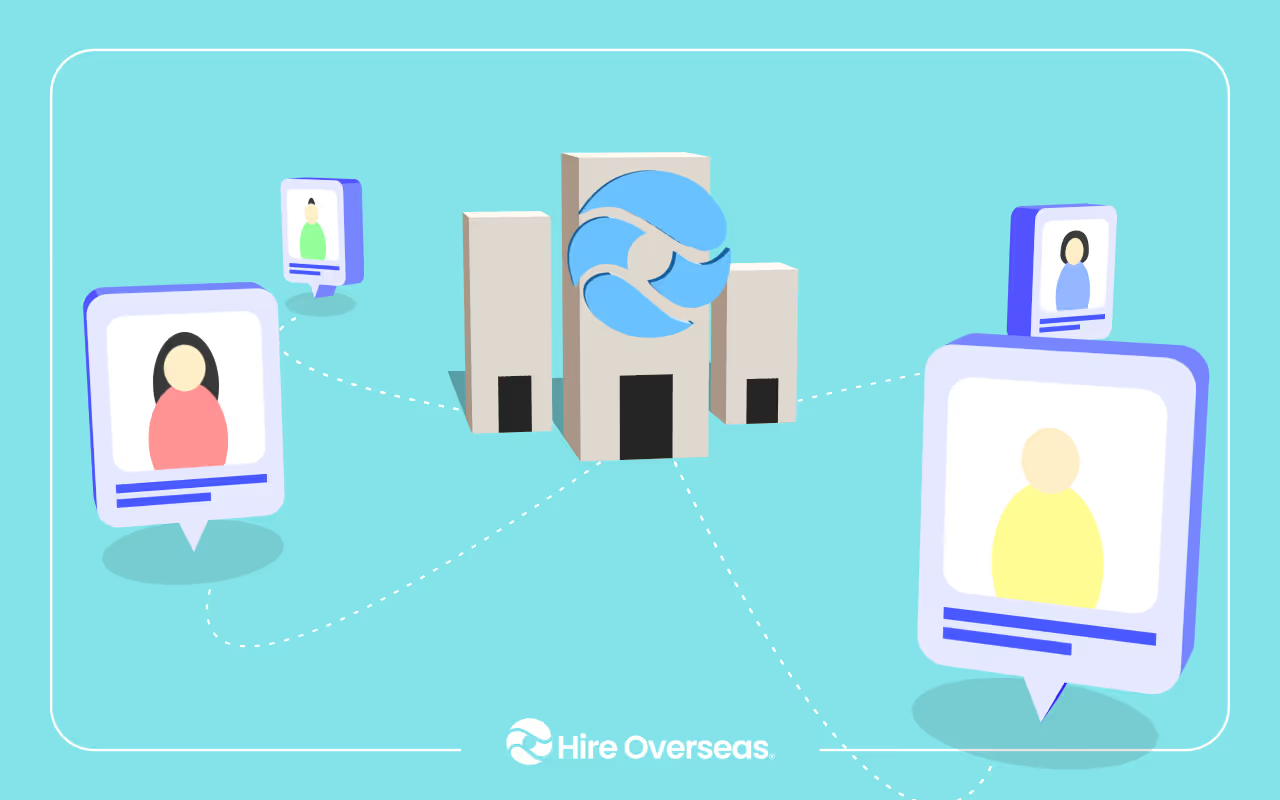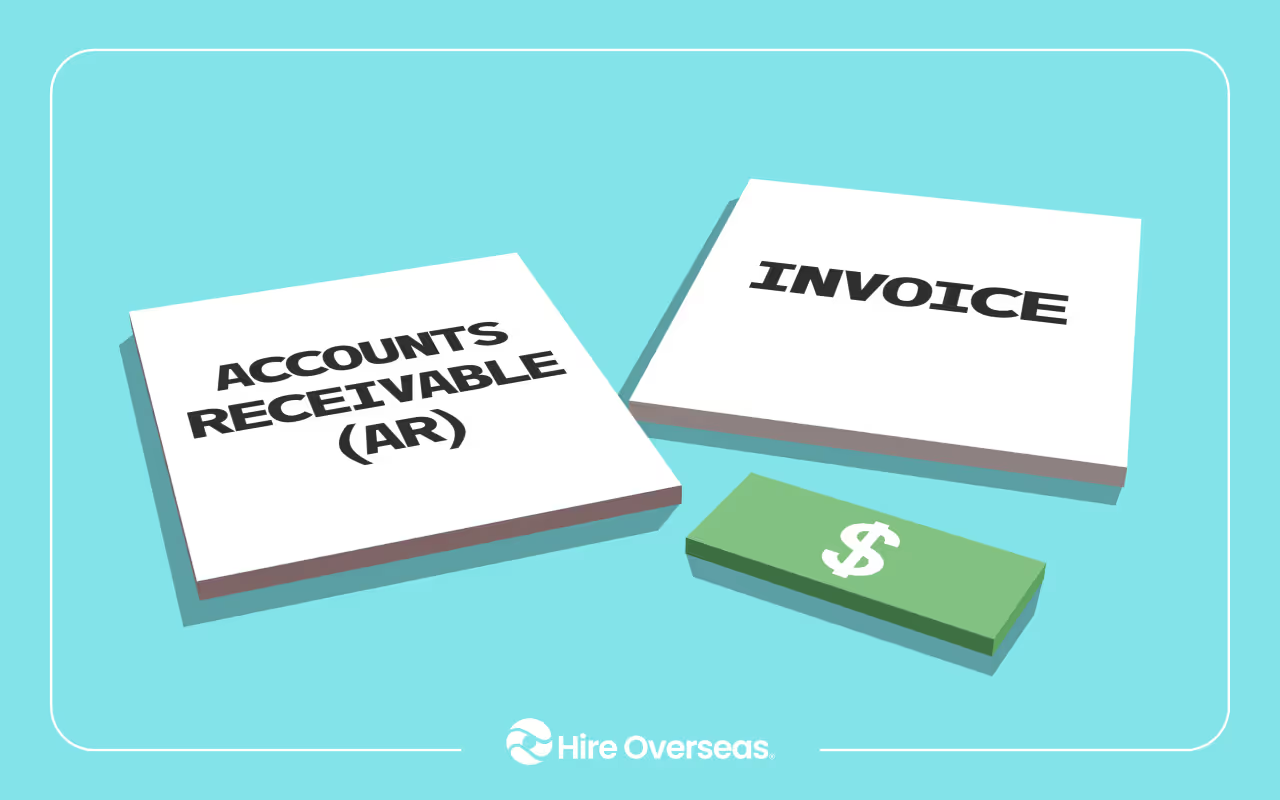From Cost Savings to Global Talent: Why Offshore Outsourcing Matters in 2025
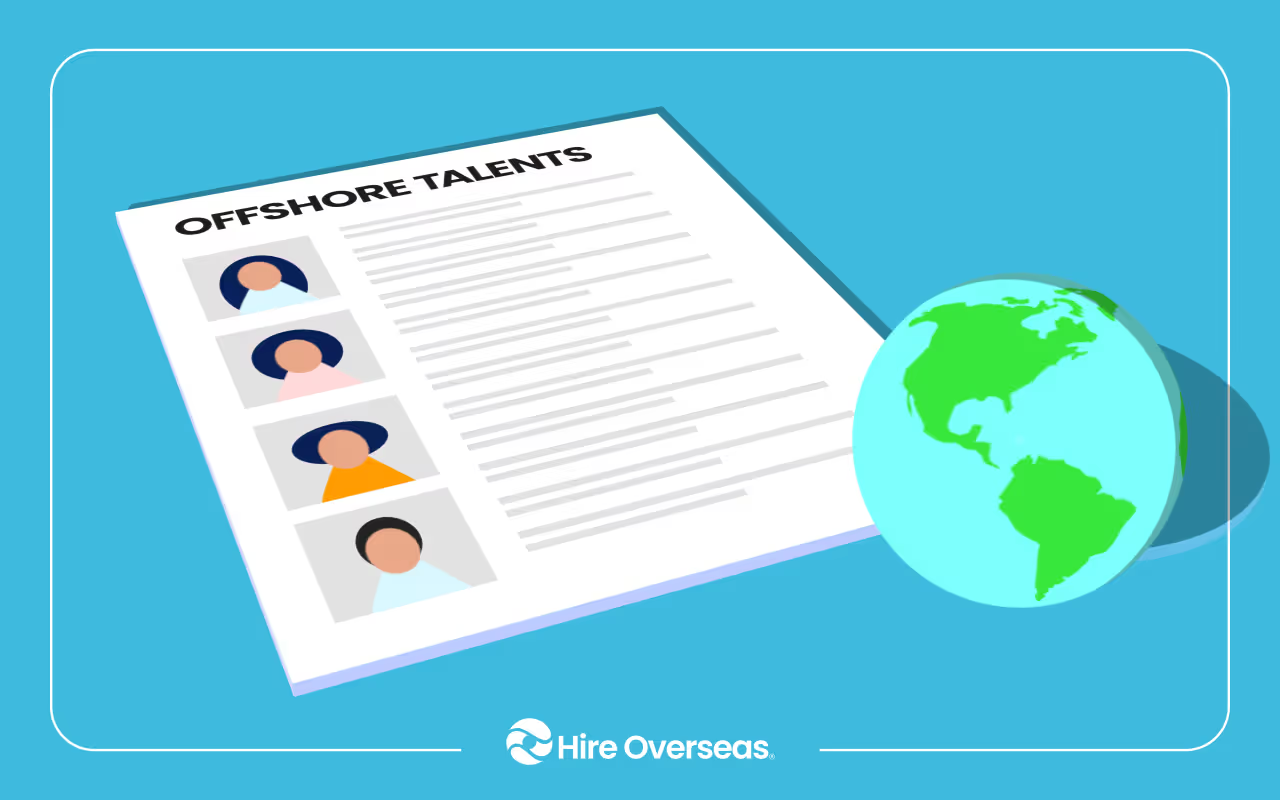
Global competition is reshaping how companies operate, forcing leaders to find smarter, more efficient ways to grow. In 2025, offshore outsourcing is no longer viewed as just a cost-cutting measure—it’s a strategic enabler of growth, innovation, and resilience. By tapping into global talent, businesses gain access to specialized skills, advanced technology, and the ability to scale at speed. Whether it’s outsourcing back-office operations, building an offshore development center, or leveraging multilingual call center services, offshore outsourcing empowers companies to balance cost savings with world-class capabilities. This guide explores why offshore outsourcing matters now more than ever.
What Is Offshore Outsourcing?
Offshore outsourcing is the business practice of hiring external service providers located in another country to handle specific tasks, processes, or entire business functions. Instead of building in-house teams for every role, companies delegate certain operations to specialized providers who can deliver the same—or often higher—quality work at a lower cost.
The scope of offshore outsourcing is vast. It spans critical functions such as:
- IT development and IT staffing offshore: Software development, application maintenance, cybersecurity, and tech support.
- Customer support services: Offshore customer support outsourcing and offshore call center services for 24/7 multilingual assistance.
- Finance and accounting: Offshore accounting outsourcing to manage bookkeeping, payroll, and compliance.
- Human resources: Offshore HR outsourcing for recruitment, training, and regulatory support.
- Back-office operations: Routine but vital tasks such as data entry, billing, and administrative support.
At its core, offshore outsourcing enables businesses to outsource back-office operations and specialized functions so they can focus on what matters most—innovation, strategy, and customer growth. The practice also brings added advantages like cost savings, access to skilled labor, and the ability to scale quickly with remote offshore teams.
Offshore Outsourcing Examples
Offshore outsourcing isn’t limited to one industry or function—it’s a versatile model that adapts to the unique needs of businesses across the globe. Here are some of the most common ways companies leverage it today:
Offshore Development Center
Technology companies often establish dedicated offshore development centers to build and maintain software products. These centers provide access to highly skilled developers, engineers, and IT staffing offshore at a fraction of the cost compared to hiring domestically. For example, many U.S. startups rely on offshore teams in India or Eastern Europe to accelerate product development while keeping budgets under control.
Offshore Customer Support Outsourcing
E-commerce brands, SaaS companies, and subscription-based businesses outsource their customer service to overseas teams. This ensures 24/7 support across multiple time zones and languages, improving customer satisfaction while reducing response times. A global partner in the Philippines, for instance, can provide round-the-clock live chat and phone support for U.S. customers.
Want to see why the Philippines is a global outsourcing powerhouse? Read our full guide on outsourcing to the Philippines.
Offshore Call Center Services
Businesses in industries like telecom, banking, and healthcare use offshore call center services to handle high call volumes. These centers are often staffed with multilingual agents who can serve diverse customer bases. By outsourcing, companies lower operating expenses while still delivering professional, consistent service.
Offshore Accounting Outsourcing
Finance is another area where outsourcing shines. Offshore accounting outsourcing allows companies to delegate tasks such as bookkeeping, tax preparation, accounts receivable, and payroll. For small businesses especially, this provides access to trained accountants without the expense of maintaining a full in-house finance department.
Offshore HR Outsourcing
Hiring, onboarding, and compliance are complex processes—especially for companies expanding internationally. Offshore HR outsourcing firms specialize in recruitment, employee administration, and compliance with labor laws in different regions. This ensures businesses stay compliant while focusing on strategic HR initiatives like employee engagement and retention.
Together, these offshore outsourcing examples show just how scalable and adaptable the model can be. Whether it’s tech development, customer-facing services, or back-office operations, offshore outsourcing helps businesses lower costs, increase efficiency, and expand capabilities far beyond what’s possible with in-house teams alone. But beyond the versatility of use cases, the true value lies in the advantages it brings to businesses of all sizes.
Offshore Outsourcing Advantages
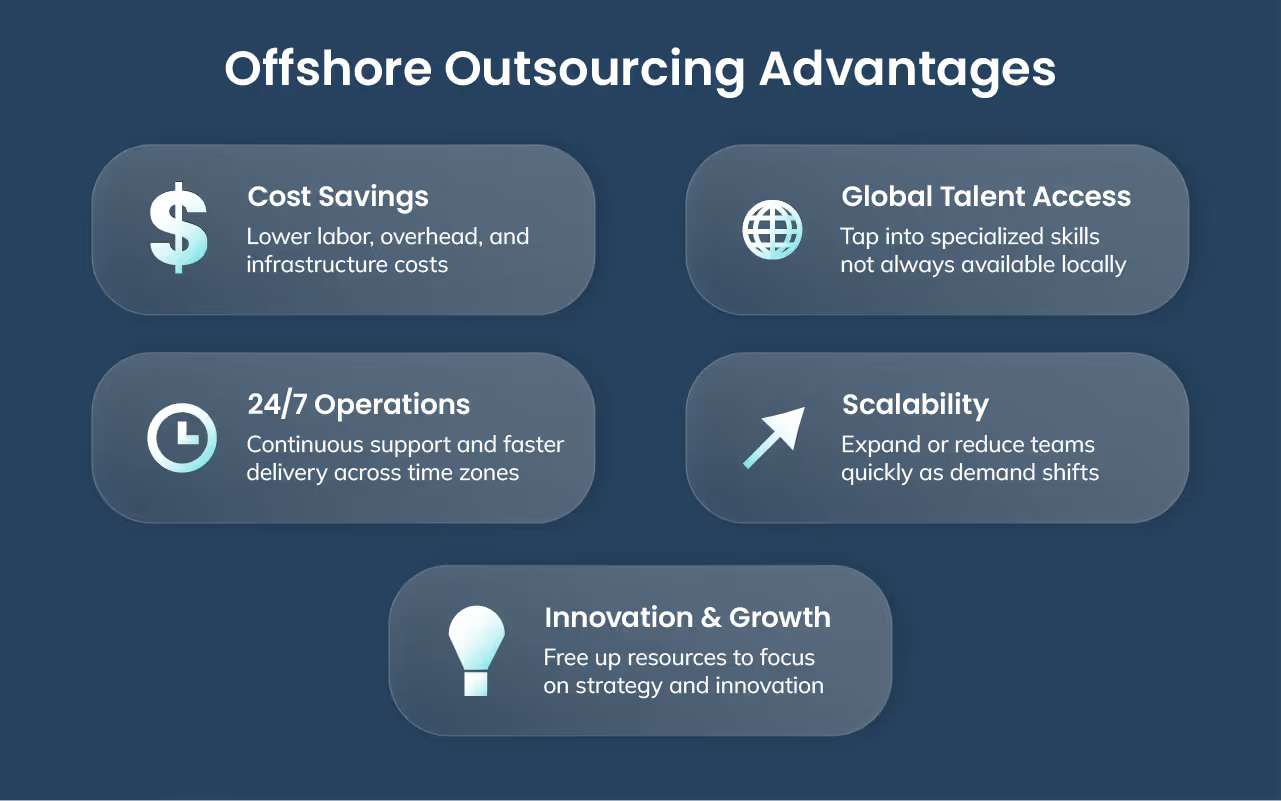
Cost Savings with Offshore Outsourcing
One of the most compelling reasons companies turn to offshore outsourcing is cost efficiency. Labor costs in outsourcing hubs such as India, the Philippines, and Vietnam are significantly lower than in North America or Europe, often resulting in savings of up to 60%. These cost savings don’t just come from wages—they also include reduced infrastructure expenses, lower overhead, and fewer costs tied to recruitment and training.
Access to Skilled Talent
Offshore outsourcing opens the door to specialized expertise that may be scarce or expensive locally. From IT engineers and software developers to finance specialists and multilingual customer support agents, businesses can build teams with highly trained professionals who bring valuable experience and technical know-how. This global talent pool allows companies to innovate faster and execute more complex projects without the bottleneck of local hiring shortages.
Scalability
As market demands shift, offshore outsourcing gives businesses the flexibility to scale operations quickly. Need to expand customer support during peak seasons? Offshore call center services can ramp up staffing in days, not months. Facing tighter budgets? Scaling back is just as easy without the costs of severance packages or idle in-house resources. This scalability makes outsourcing particularly attractive for startups and growing businesses that need agility.
24/7 Operations
By leveraging remote offshore teams across multiple time zones, companies can keep operations running around the clock. While one team ends its workday, another is just beginning—ensuring uninterrupted workflows, faster project delivery, and continuous customer support. This “follow-the-sun” model gives companies a competitive advantage in industries that demand speed and availability, such as eCommerce, SaaS, and finance.
Focus on Core Growth
Outsourcing non-core tasks—such as payroll processing, IT maintenance, or data entry—frees up internal teams to focus on innovation, customer experience, and revenue-generating activities. Instead of spreading resources thin, businesses can reallocate energy and capital toward growth strategies, product development, and market expansion.
Access to Advanced Technology and Tools
Many offshore providers invest heavily in the latest technologies, automation platforms, and analytics tools to remain competitive. By outsourcing, businesses gain access to these innovations without having to make expensive in-house investments.
Improved Risk Management
Distributing processes across offshore partners can reduce operational risks. For example, if a natural disaster or labor shortage affects one region, companies can shift work to another offshore location. This creates resilience and business continuity.
Compliance Expertise
Offshore HR outsourcing and accounting outsourcing providers are often well-versed in local regulations and global compliance standards. They help businesses stay compliant with tax laws, labor requirements, and data privacy regulations without the burden of managing everything internally.
Talent Pipeline Flexibility
Offshore vendors can provide access to both long-term dedicated teams and short-term project-based support. This flexibility is especially valuable for companies that experience seasonal demand spikes or require specialized expertise for limited projects.
Multilingual Capabilities
Offshore call center services and customer support outsourcing often include agents fluent in multiple languages. This allows companies to serve global customers more effectively, expanding their market reach without building costly in-house multilingual teams.
Speed to Market
With offshore development centers, businesses can accelerate product launches and updates. Having development cycles run overnight in another time zone means projects move faster compared to traditional in-house models.
Innovation Through Diversity
Collaborating with remote offshore teams introduces fresh perspectives and new problem-solving approaches. The mix of cultural backgrounds and experiences can lead to innovative solutions that wouldn’t emerge in a homogenous, local-only workforce.
Predictable Pricing Models
Offshore outsourcing contracts and SLAs often come with transparent, fixed pricing structures. This predictability makes it easier for businesses to budget and forecast costs, which is critical for small businesses and enterprises alike.
Offshore Outsourcing Risks
Despite the many advantages of offshore outsourcing, businesses must also be aware of the challenges that come with working across borders. These risks, if left unmanaged, can undermine the benefits of outsourcing.
Time Zone Differences
Collaborating across multiple time zones can slow down communication, cause project delays, and reduce efficiency. Without careful planning, teams may find it difficult to coordinate meetings or resolve urgent issues quickly.
✅ Hire Overseas Solution: We match businesses with remote offshore teams that offer overlapping working hours and flexible scheduling, making communication seamless.
Cultural Alignment in Outsourcing
Differences in language, communication styles, and workplace culture can lead to misunderstandings or misaligned expectations. Without proper onboarding and cultural training, collaboration between local and offshore teams may suffer.
✅ Hire Overseas Solution: Our onboarding process includes cultural training and integration support to ensure offshore teams align with your company’s values and communication style.
Data Security and Compliance in Outsourcing
Sharing sensitive data across borders introduces additional risks. Regulations like GDPR, HIPAA, and SOC 2 demand strict compliance, and failure to follow them can result in financial penalties and reputational damage.
✅ Hire Overseas Solution: Every partner we recommend follows strict international standards, including GDPR, HIPAA, and SOC 2 compliance. We prioritize vendors with strong cybersecurity protocols to protect sensitive data.
Offshore Vendor Management
Managing a vendor thousands of miles away is more complex than managing an in-house team. Ensuring accountability, maintaining quality, and monitoring performance require structured governance, KPIs, and strong communication channels.
✅ Hire Overseas Solution: We help set clear KPIs, communication cadences, and performance monitoring systems to ensure your offshore teams deliver consistent results.
Outsourcing Contracts and SLAs
Poorly drafted contracts and service-level agreements can create confusion about responsibilities, deliverables, and timelines. Inadequate legal frameworks make it difficult to enforce accountability or resolve disputes.
✅ Hire Overseas Solution: We assist in structuring outsourcing contracts and SLAs to clearly define expectations, responsibilities, and deliverables, reducing the likelihood of disputes.
Transparency & Communication
Without clear communication and pricing models, businesses may struggle with hidden costs or lack of visibility into performance.
✅ Hire Overseas Solution: We establish open communication channels, regular reporting, and clear governance models so businesses always have visibility into offshore team performance. We also maintain transparent pricing structures with no hidden fees, giving companies full clarity and predictability in their outsourcing costs.
Talent Quality Risks
Hiring the wrong talent can lead to inefficiencies, poor performance, and high turnover.
✅ How Hire Overseas Helps: Our rigorous screening process ensures only highly qualified, pre-vetted professionals join your offshore teams, reducing the risk of mismatched skills or poor performance.
With Hire Overseas, businesses don’t just outsource—they gain a trusted partner to guide them through the complexities of global outsourcing. This reduces risk, increases efficiency, and ensures a smoother path to scaling with offshore teams.
Building a Global Outsourcing Strategy
To succeed with offshore outsourcing, businesses need more than just a cost-saving mindset—they need a clear, well-structured global outsourcing strategy. Here’s how to build one:
1. Define Goals with Precision
Before outsourcing, clarify your objectives. Are you aiming for cost reduction, faster time to market, access to skilled labor, or scalability? For example, a startup might prioritize outsourcing back-office operations to stay lean, while an enterprise may use an offshore development center to accelerate innovation. Having well-defined goals ensures you measure success against the right benchmarks.
2. Choose the Right Partner
Not all vendors are created equal. Evaluate potential providers based on their track record in quality delivery, security compliance, and client testimonials. Ask about their experience in your industry, their infrastructure, and how they handle data security and compliance in outsourcing. The right partner should feel like an extension of your internal team.
3. Set Clear Outsourcing Contracts and SLAs
A solid outsourcing relationship begins with well-defined agreements. Contracts should outline deliverables, timelines, responsibilities, and dispute resolution mechanisms. Service-level agreements (SLAs) should specify performance metrics such as response times, uptime, and accuracy rates. This ensures accountability while providing a framework for continuous improvement.
4. Prioritize Communication
Distance doesn’t have to mean disconnection. Establish clear communication channels using collaboration tools like Slack, Microsoft Teams, or Zoom. Create overlapping work hours to minimize the impact of time zone differences, and schedule regular check-ins to maintain visibility and trust. Transparent communication is the backbone of effective offshore vendor management.
5. Align Teams Culturally
Cultural alignment in outsourcing is critical for long-term success. Invest in cross-cultural training, encourage team-building activities, and onboard offshore staff as if they were part of your in-house team. When remote offshore teams feel integrated into your company culture, they’re more motivated, collaborative, and aligned with your business goals.
6. Monitor Performance Continuously
Building a global outsourcing strategy doesn’t end with onboarding. Regular performance reviews, KPI tracking, and feedback sessions are essential for long-term success. Use project management and analytics tools to measure progress, identify gaps, and ensure that offshore teams are meeting expectations. Continuous monitoring not only mitigates risks but also drives ongoing improvement and innovation.
The Future of Global Talent in Offshore Outsourcing
In 2025, offshore outsourcing is no longer defined solely by cost savings. While reducing expenses remains a powerful benefit, the real value lies in the ability to access global talent and leverage it for innovation, speed, and growth. Companies are increasingly treating offshore outsourcing as a long-term workforce strategy rather than a short-term fix.
Filling Skill Gaps
Many regions face talent shortages in specialized fields such as AI, cybersecurity, software engineering, and data analytics. Offshore outsourcing helps businesses bridge these gaps by connecting them with highly skilled professionals abroad who can deliver quality results at scale.
Remote Offshore Teams as Innovation Hubs
Instead of simply handling repetitive tasks, today’s offshore teams are trusted with mission-critical projects—developing new products, designing customer experiences, and even leading digital transformation initiatives. These remote offshore teams often function as extensions of a company’s innovation hub.
Global Outsourcing Strategy for Talent Acquisition
A well-designed global outsourcing strategy allows businesses to go beyond local recruiting limitations. Companies can build diverse, multicultural teams that bring fresh perspectives and new approaches to problem-solving, fostering creativity and innovation.
Diversity as a Competitive Edge
Offshore outsourcing isn’t just about filling roles—it’s about embracing diversity. Different cultural backgrounds and experiences enrich collaboration, spark new ideas, and create solutions that resonate with a global customer base.
Retention Through Opportunity
With structured onboarding, cultural alignment, and continuous engagement, offshore outsourcing can lead to long-term employee retention. This helps businesses avoid the churn and training costs often associated with in-house hiring while building stable, high-performing offshore teams.
The shift from viewing outsourcing as a purely transactional relationship to treating it as a way to access and nurture global talent is what makes offshore outsourcing truly matter in 2025. Companies that understand this evolution will not only cut costs but also gain a sustainable competitive advantage.
Offshore Outsourcing in 2025: More Than Just Cost Savings
Offshore outsourcing has evolved into more than a cost-saving strategy—it’s a growth engine that empowers businesses to scale globally, innovate faster, and access world-class talent. From offshore development centers to multilingual customer support outsourcing, the opportunities are vast and expanding. By balancing cost efficiency with the strategic pursuit of talent, companies can position themselves for long-term success in an increasingly competitive global market.
If you’re ready to unlock the full potential of offshore outsourcing, Hire Overseas can help you build reliable, high-performing offshore teams tailored to your needs.
Book a free strategy call today and start scaling smarter with Hire Overseas.
FAQs about Offshore Outsourcing
What is the difference between offshore, nearshore, and onshore outsourcing?
- Offshore outsourcing involves delegating tasks to providers in distant countries (e.g., U.S. companies outsourcing to India or the Philippines).
- Nearshore outsourcing refers to hiring providers in neighboring or nearby countries (e.g., U.S. companies outsourcing to Mexico).
- Onshore outsourcing means contracting providers within the same country.
Each model offers unique benefits in terms of cost, cultural alignment, and time zone management.
Which countries are the most popular for offshore outsourcing in 2025?
Top outsourcing destinations include India, the Philippines, Vietnam, Poland, and Eastern Europe for IT and customer support, while Latin America is gaining traction for nearshore outsourcing due to time zone alignment with North America.
Is offshore outsourcing only for large enterprises?
No. While global corporations have long used offshore outsourcing, small and mid-sized businesses (SMBs) are adopting it rapidly. Flexible pricing, scalable teams, and remote work culture make outsourcing accessible and cost-effective for startups and SMEs.
What industries benefit most from offshore outsourcing?
While outsourcing is versatile, industries that rely heavily on digital operations benefit the most, including IT & software, eCommerce, healthcare, finance, telecom, and professional services.
How much does offshore outsourcing cost in 2025?
Costs vary by service type and location. For example:
- Offshore developers: $2,000–$5,000 per month depending on skill level and region (Hire Overseas vetted developers start at $2,000/month).
- Customer support agents: $8–$15 per hour in top outsourcing hubs.
- Accounting or HR specialists: typically 40–60% cheaper than hiring domestically.
Hire Overseas offers transparent pricing starting at $2,000 per month, giving businesses access to highly skilled offshore talent at predictable costs.
Unlock Global Talent with Ease
Hire Overseas streamlines your hiring process from start to finish, connecting you with top global talent.
Unlock Global Talent with Ease
Hire Overseas streamlines your hiring process from start to finish, connecting you with top global talent.

